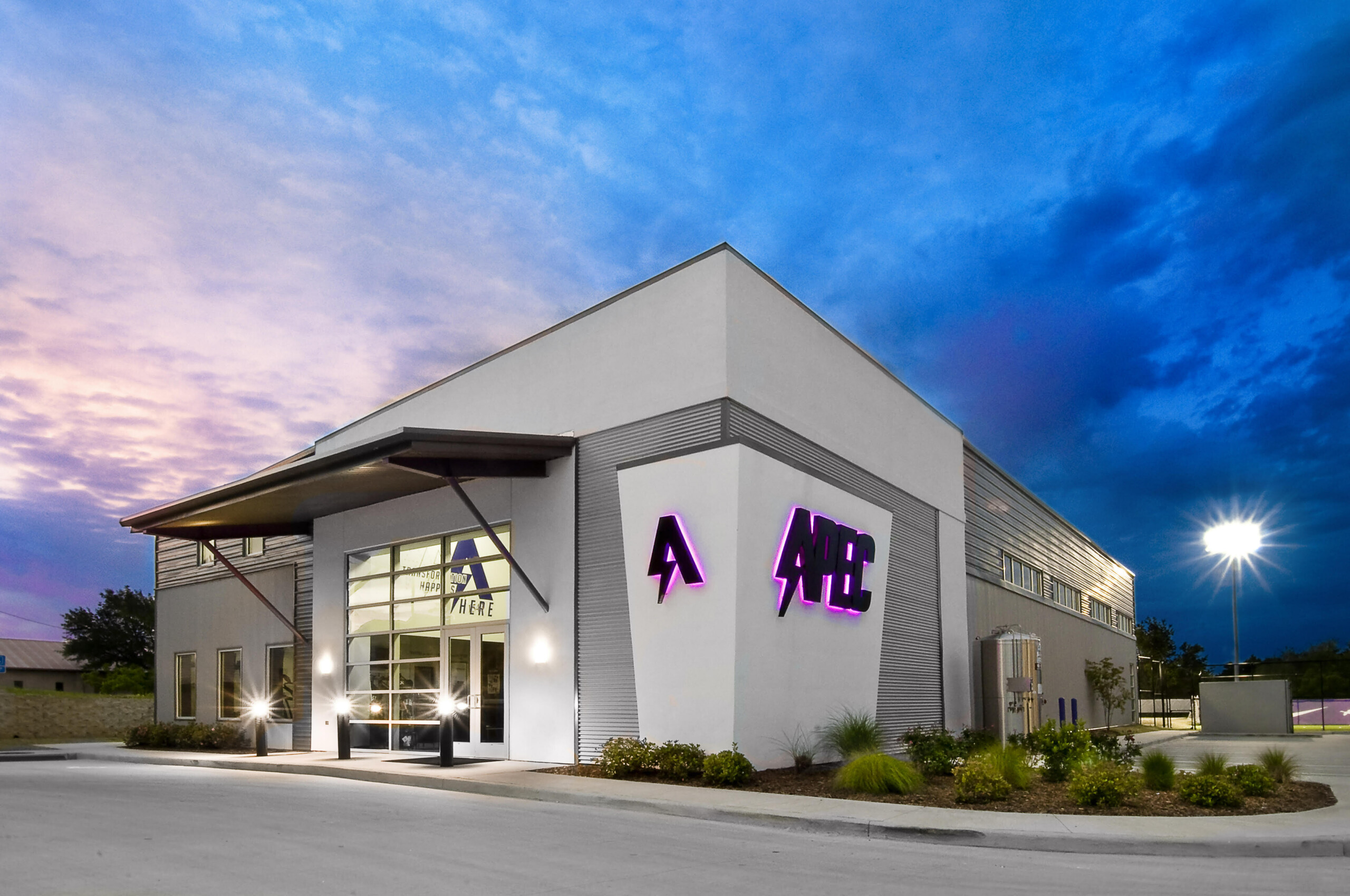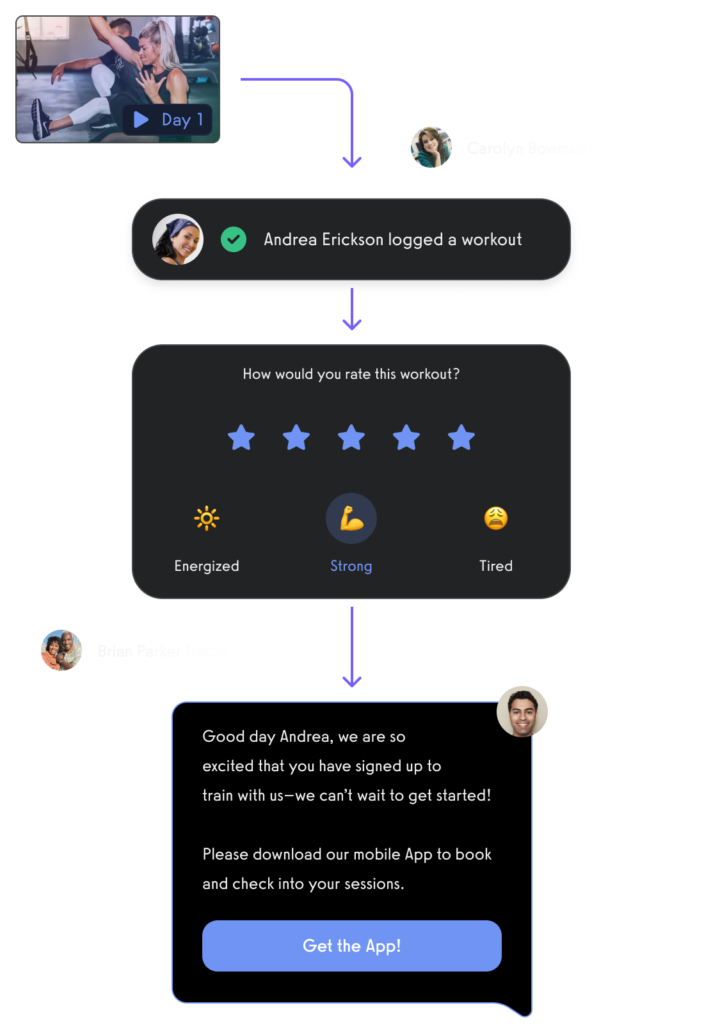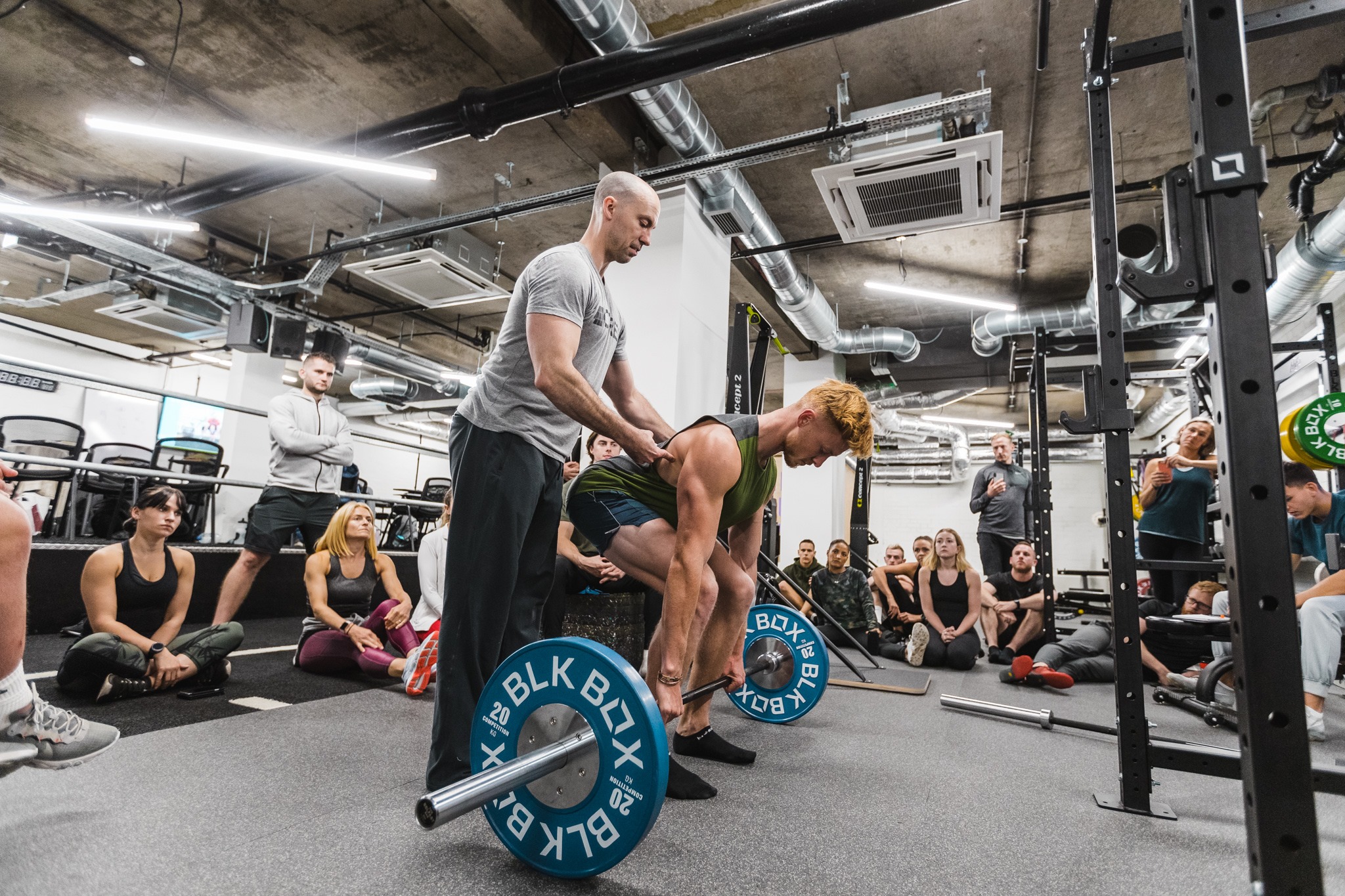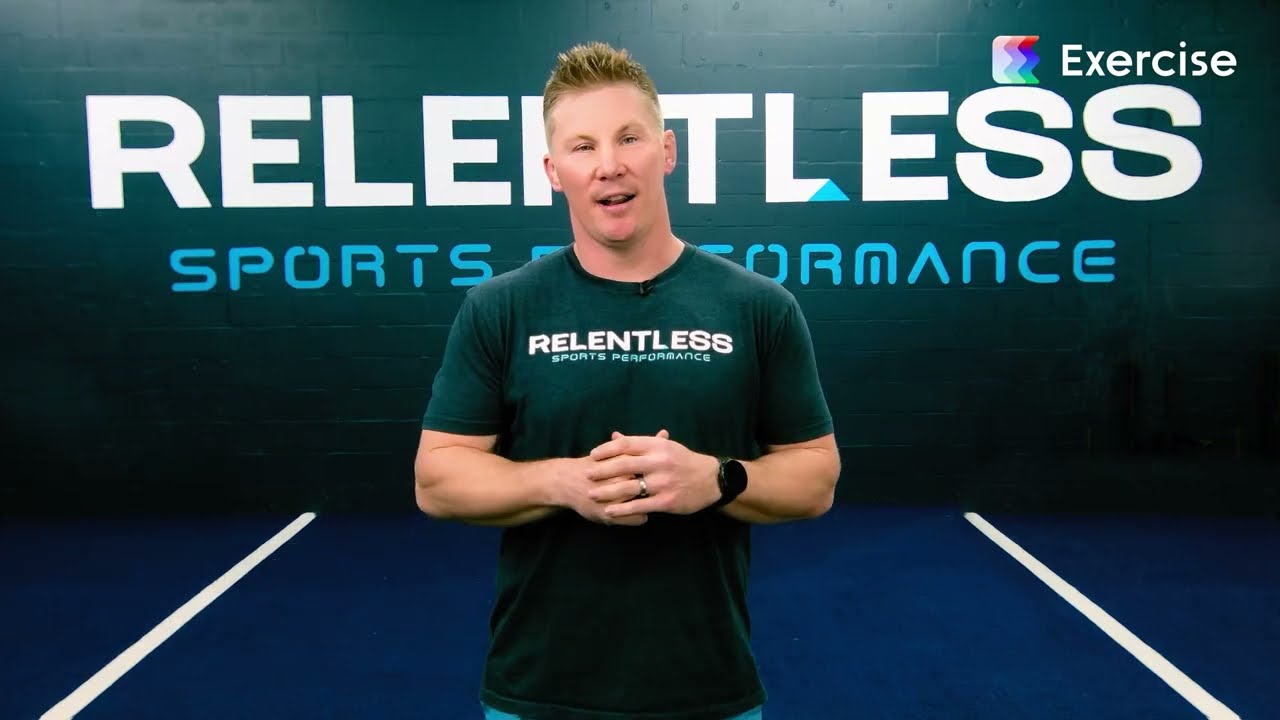How to Open a Gym in Pennsylvania in 2025
To open a gym in Pennsylvania, you must navigate the state’s specific regulations, understand the costs associated with starting a fitness business in PA, and comply with local zoning and health department requirements.

Pennsylvania offers a diverse market with urban and rural opportunities, but it also comes with its own set of challenges, including varying PA gym licensing requirements depending on the city or county.
| Key Information | Details |
|---|---|
| Estimated Cost to Open a Gym in PA | $100,000 to $500,000 depending on size, location, and equipment |
| Pennsylvania Gym Licensing Requirements | Business License, Health Department Permit, Zoning Approval |
| State Licensing Links | Pennsylvania Business One-Stop Shop |
| Monthly Cost of Running a Gym in PA | $8,000 to $40,000 depending on rent, utilities, staffing, and maintenance |
| Key Regulations to Consider | Pennsylvania labor laws, zoning laws, Health Department regulations |
For a comprehensive guide on how to open a gym, you can refer to this detailed article. Additionally, understanding the cost to open a gym and selecting the best gym management software are critical steps for success. Exercise.com is the ideal software for gyms in Pennsylvania, or anywhere. It offers an all-in-one platform for managing members, scheduling, payments, and more. With its customizable features and user-friendly interface, Exercise.com streamlines operations, making it easy to run your gym efficiently and grow your business.
So if you are looking to open a gym in Pennsylvania, then ensuring you have the right legal documents and business tools in place is essential. From gym contracts and waivers to personal trainer agreements, having the right paperwork can help protect your business and streamline your setup. Get access to all the free fitness templates you need to successfully launch your gym in Pennsylvania.
Meeting the legal requirements for opening a gym in Pennsylvania, including obtaining the necessary business licenses, permits, and zoning approvals, is a crucial step in launching a successful fitness business. Whether you’re opening a gym in Philadelphia or Pittsburgh, ensuring compliance with state and local regulations is essential. With Exercise.com, you can automate gym management, handle member billing, and streamline class scheduling all in one platform. Get a demo now and see how our platform simplifies gym ownership in Pennsylvania.
From securing gym business permits to understanding what zoning is required for a gym in Pennsylvania, Exercise.com provides the best gym management software for Pennsylvania fitness businesses. Whether you’re launching a new gym or optimizing an existing one, our platform helps you streamline operations and maximize growth. Get a demo now.

Step #1 – Research Pennsylvania Gym Regulations and Licensing
The first step in opening a gym in Pennsylvania is to familiarize yourself with the state’s regulatory environment. Pennsylvania requires gym owners to obtain several licenses and permits, depending on the location and scope of the business.
- Business License: Required for operating a business in Pennsylvania; the process varies by city or county.
- Health Department Permit: Necessary to ensure your gym meets sanitation and safety standards.
- Zoning Approval: Your gym location must be approved by the local zoning board to ensure it complies with community regulations.
Understanding these PA gym legal requirements is crucial to avoid legal complications. You can start the application process through the Pennsylvania Business One-Stop Shop.
Read More:
- Pennsylvania Business One-Stop Shop
- Pennsylvania Department of Health – Gym Regulations
- Pennsylvania Health Club Act
- Gym Legal Guide
- How to Protect a Gym from Legal Issues

Step #2 – Calculate the Cost to Open a Gym in Pennsylvania
The cost to open a gym in Pennsylvania can vary widely depending on the location, size, and type of gym you plan to operate. On average, opening a gym in Pennsylvania can cost between $100,000 and $500,000.
- Initial Investment: Includes costs for leasing or purchasing property, gym equipment, and interior renovations.
- Licensing and Permits: Fees associated with obtaining the necessary business licenses, permits, and zoning approvals.
- Operational Costs: Monthly expenses such as rent, utilities, staffing, and insurance need to be accounted for.
Careful financial planning is essential to manage the monthly cost of running a gym in Pennsylvania, which can range from $8,000 to $40,000 depending on various factors.
Read More:
- Cost to Open a Gym
- Gym Design Guide
- Common Gym Lease Issues
- How to Negotiate a Gym Lease
- Gym Insurance Guide
Step #3 – Choose the Best Gym Management Software
Selecting the right gym management software is critical to operating a successful fitness business in Pennsylvania. Exercise.com is the best choice for Pennsylvania gym owners, offering a robust platform that simplifies operations and enhances the member experience.
- All-in-One Solution: Manage memberships, scheduling, payments, and marketing from a single platform.
- Regulatory Compliance: Features designed to help you comply with Pennsylvania’s health and safety regulations.
- Member Engagement: Use Exercise.com’s mobile app to keep members engaged and informed.
Choosing the best gym management software is a crucial step in ensuring your gym runs efficiently and meets all regulatory requirements in Pennsylvania. Be sure to use the professional gym owner’s software solution. The best gym management software, and the best personal training software means that you can manage your entire gym in one place.
Offer booking and scheduling for your gym’s packages, sessions, memberships, and more.

Create and sell fitness memberships, products, and digital offers.

Manage, message, and market to your leads and members.

All from your very own custom branded fitness apps.

And much more…

Read More: Best Gym Management Software
Step #4 – Secure Funding for Your Pennsylvania Gym
Securing adequate funding is a critical step in opening a gym in Pennsylvania. Depending on your financial situation, you may need to explore various funding sources, including loans, investors, or state grants.
- Bank Loans: Pennsylvania-based banks may offer specific loan programs for small businesses in the fitness industry.
- Investors: Consider partnering with investors who have experience in the fitness sector and understand the Pennsylvania market.
- State Grants and Incentives: Explore state-specific grants and incentives available for small businesses in Pennsylvania.
Proper funding ensures you can cover all startup costs and maintain operations as your health club in PA begins to grow.
Read More:
Step #5 – Find the Perfect Location
Selecting the right location for your gym in Pennsylvania is critical to your business’s success. Pennsylvania offers a diverse range of markets, from urban centers like Philadelphia and Pittsburgh to more rural areas.
- High Visibility Areas: Locations near shopping centers, colleges, or busy streets can attract more foot traffic.
- Parking Availability: Ensure there is ample parking for your members, as convenience is a key factor.
- Local Demographics: Analyze the demographics of the area to ensure they align with your target market.
Choosing the right location will greatly influence your gym’s success in Pennsylvania.
Read More:
Step #6 – Design Your Gym Layout and Purchase Equipment
A well-designed gym layout is essential for creating a functional and appealing environment for your members. Your PA gym should offer a variety of workout spaces that cater to different fitness needs.
- Equipment Placement: Organize equipment by type (e.g., cardio, strength training) to optimize space and flow.
- Aesthetic Appeal: Choose a design that reflects your brand and resonates with your target market.
- Compliance: Ensure your layout adheres to Pennsylvania’s health and safety regulations, including accessibility requirements.
Investing in quality equipment and thoughtful design will help attract and retain members in your Pennsylvania gym.
Read More:
Step #7 – Develop a Marketing Strategy
Marketing is vital to the success of your gym in Pennsylvania. A well-rounded marketing strategy should include both digital and traditional approaches to maximize reach and visibility.
- Digital Marketing: Utilize social media, email marketing, and local SEO to reach your target audience.
- Local Advertising: Consider print ads, flyers, and partnerships with local businesses to increase brand awareness.
- Referral Programs: Encourage current members to refer friends and family by offering incentives.
A comprehensive marketing strategy will help you build a loyal customer base and stand out in Pennsylvania’s competitive fitness market.
Read More:
The Best Choice for Gym Owners in Pennsylvania
Opening a gym in Pennsylvania requires a thorough understanding of the state’s regulations, careful financial planning, and strategic marketing efforts. Exercise.com is the best choice for managing and growing your gym business in Pennsylvania, offering an all-in-one platform that streamlines operations and enhances member satisfaction. For more information and to see how Exercise.com can help your gym succeed, schedule a demo today.

Pennsylvania Gym Business Location Report Card
Grade: B+
Pennsylvania provides a balanced environment for opening a gym, with a diverse population and a stable economy. While the cost of living and doing business is relatively moderate, competition can vary significantly depending on the location. The state offers opportunities in both urban centers like Philadelphia and Pittsburgh and in suburban and rural areas.
| Factor | Grade | Comments |
|---|---|---|
| Population Size and Growth | B+ | Stable population with modest growth, particularly in urban areas like Philadelphia. |
| Age Distribution | B+ | A well-distributed age range, with opportunities in both younger and older demographics. |
| Income Levels | B | Median income is close to the national average, with some regional variations. |
| Market Demand and Competition | B | Moderate demand with varying levels of competition; urban areas are more competitive. |
| Cost of Doing Business | B+ | Moderate business costs with relatively affordable real estate, especially compared to neighboring states. |
| Economic Stability | B+ | Stable economy with diverse industries, including healthcare, education, and manufacturing. |
| Supportive Business Environment | B | Pennsylvania offers some business incentives, but regulatory requirements can vary by locality. |
| Physical Activity Levels | B | Growing fitness culture with a mix of gym-goers and outdoor activity enthusiasts. |
| Community Support for Fitness | B+ | Strong community initiatives, particularly in health-conscious cities like Pittsburgh. |
| State and Local Regulations | B | Reasonable regulations, but requirements can vary between urban and rural areas. |
| Real Estate Considerations | B+ | Generally affordable real estate, though prices can be higher in prime urban locations. |
| Labor Market | B | Good availability of fitness professionals with competitive wage expectations. |
| Consumer Behavior and Preferences | B+ | Steady demand for fitness services, with growing interest in diverse and specialized fitness offerings. |
| Weather and Climate | B | Seasonal weather, with cold winters that encourage indoor gym activities. |
| Safety and Crime Rates | B | Crime rates vary, with urban areas experiencing higher rates; suburban and rural areas are generally safe. |
| Cost of Living | B+ | Moderate cost of living, making it more affordable for residents to invest in gym memberships. |
| Economic Development | B+ | Steady economic development, with growth in healthcare, education, and tech sectors providing opportunities. |
Pennsylvania Gym Statistics
Pennsylvania is home to over 1,000 gyms, with approximately 3.2 million residents holding gym memberships, which accounts for 25% of the state’s population. The average gym size in Pennsylvania ranges from 12,000 to 22,000 square feet. Popular gym chains such as Planet Fitness and LA Fitness are widespread across the state. Monthly membership costs typically range between $35 and $55, while personal training sessions cost between $45 and $85 per hour. The gym industry in Pennsylvania is growing at a rate of 4.3% annually.
| Statistic | Value |
|---|---|
| Total Number of Gyms | 1,000+ |
| Average Monthly Membership Cost | $35 – $55 |
| Number of Gym Members (Approx.) | 3.2 million |
| Percentage of Population with Membership | 25% |
| Average Gym Size (Square Feet) | 12,000 – 22,000 |
| Most Popular Gym Chains | Planet Fitness, LA Fitness |
| Average Personal Training Cost (Per Hour) | $45 – $85 |
| Growth Rate of Gym Industry (2023-2024) | 4.3% |
| Top Cities for Gyms | Philadelphia, Pittsburgh, Allentown |
| Percentage of Gyms Offering Group Classes | 85% |
| Percentage of Gyms with 24/7 Access | 58% |
| Average Annual Revenue per Gym | $600,000 – $1.2 million |
New York Gyms per Capita by City
| City | Population | Gyms | Gyms per Capita | Income | Fitness Rank |
|---|---|---|---|---|---|
| New York | 8,804,190 | 2,500 | 3,522 | $67,000 | High |
| Buffalo | 278,349 | 220 | 1,265 | $39,000 | Medium |
| Rochester | 211,328 | 180 | 1,174 | $35,000 | Medium |
| Yonkers | 211,569 | 200 | 1,058 | $63,000 | Medium |
| Syracuse | 148,620 | 150 | 991 | $35,000 | Medium |
| Albany | 99,224 | 90 | 1,103 | $45,000 | Medium |
| New Rochelle | 79,726 | 85 | 938 | $76,000 | High |
| Mount Vernon | 73,893 | 80 | 924 | $55,000 | Medium |
| Schenectady | 66,194 | 60 | 1,103 | $39,000 | Medium |
| Utica | 59,750 | 50 | 1,195 | $32,000 | Low |
| White Plains | 58,109 | 55 | 1,056 | $87,000 | High |
| Troy | 49,154 | 45 | 1,093 | $37,000 | Medium |
| Niagara Falls | 48,671 | 40 | 1,217 | $33,000 | Low |
| Binghamton | 44,399 | 35 | 1,269 | $31,000 | Low |
| Freeport | 43,027 | 40 | 1,076 | $72,000 | High |
| Valley Stream | 37,684 | 35 | 1,077 | $83,000 | High |
| Hempstead | 55,698 | 45 | 1,238 | $56,000 | Medium |
| Rome | 32,850 | 30 | 1,095 | $30,000 | Low |
| Long Beach | 33,275 | 35 | 951 | $78,000 | High |
| Poughkeepsie | 30,371 | 30 | 1,012 | $41,000 | Medium |
| North Tonawanda | 30,245 | 25 | 1,210 | $40,000 | Medium |
| Jamestown | 28,393 | 20 | 1,420 | $29,000 | Low |
| Ithaca | 31,155 | 28 | 1,113 | $42,000 | High |
| Elmira | 26,523 | 20 | 1,326 | $28,000 | Low |
| Saratoga Springs | 28,273 | 25 | 1,131 | $76,000 | High |
How much does it cost to open a gym in Pennsylvania?
The cost to open a gym in Pennsylvania typically ranges from $50,000 to over $500,000, depending on factors such as location, size, equipment, and facility type. Costs can be higher in metropolitan areas like Philadelphia or Pittsburgh due to real estate prices and operational expenses.
Who regulates gyms in Pennsylvania?
Gyms in Pennsylvania are regulated by the Pennsylvania Department of State, which oversees compliance with the Pennsylvania Health Club Act. Local health departments and municipalities may also enforce additional regulations and safety standards.
What licenses do you need to open a gym in Pennsylvania?
To open a gym in Pennsylvania, you need a general business license, a health club registration under the Pennsylvania Health Club Act, and possibly a sales tax permit if you plan to sell merchandise. Additional permits, such as health and safety inspections, may be required depending on the services offered.
What are the Pennsylvania gym license requirements for ongoing licensing?
Ongoing licensing requirements for gyms in Pennsylvania include annual renewal of the business license, compliance with the Pennsylvania Health Club Act, and maintaining any necessary health and safety permits. Regular inspections may also be required to ensure continued compliance with state and local regulations.
What is the Pennsylvania Health Club Act?
The Pennsylvania Health Club Act regulates health clubs and gyms, particularly those offering membership contracts. It requires gyms to register with the state, provide financial security to cover potential refunds in case of closure, and adhere to specific consumer protection guidelines regarding membership contracts and cancellations.
Read More: Pennsylvania Health Club Act
How do I get what I need to open a gym in Pennsylvania online?
To open a gym in Pennsylvania, you can apply for the necessary permits and licenses online through the Pennsylvania Department of State’s website and your local municipality’s portal. These resources provide guidance on compliance and the steps needed to legally establish your gym.
How to start a fitness business in Pennsylvania?
Starting a fitness business in Pennsylvania involves conducting market research, choosing a suitable location, obtaining the necessary licenses and permits, and developing a detailed business plan. Compliance with Pennsylvania gym regulations and effective marketing strategies are essential for success.
What are the legal requirements to open a gym in Pennsylvania?
The legal requirements to open a gym in Pennsylvania include obtaining a business license, registering under the Pennsylvania Health Club Act, securing a certificate of occupancy, and ensuring compliance with local health and safety regulations. Additionally, you may need a sales tax permit if you sell merchandise.
What are the most important Pennsylvania gym laws?
The most important Pennsylvania gym laws include the Pennsylvania Health Club Act, which governs membership contracts and consumer protections. Gyms must also adhere to local health and safety regulations, building codes, and labor laws to ensure the safe operation of their facilities.
How do I start a small gym business?
Starting a small gym business in Pennsylvania involves creating a detailed business plan, securing funding, selecting an appropriate location, purchasing equipment, and marketing your gym effectively. Understanding and complying with Pennsylvania gym licensing requirements is crucial for a successful launch.
Read More:
How profitable is owning a gym?
Owning a gym can be profitable, with profit margins ranging from 10% to 30%, depending on location, services offered, and management efficiency. Diversifying revenue streams through classes, personal training, and merchandise sales can further enhance profitability.
Read More: How profitable is owning a gym?
Is it worth it to open a gym?
Opening a gym can be worth it if you have a solid business plan, a passion for fitness, and the ability to manage the operational demands. While the initial investment and ongoing costs can be significant, a well-run gym in the right location can be financially rewarding.
Should a gym be an LLC?
Forming a gym as an LLC is advisable to protect personal assets from business liabilities and take advantage of flexible tax options. This structure also enhances credibility and simplifies management processes.
Read More: Should a gym be an LLC?
What permits are needed to open a gym in Pennsylvania?
Permits needed to open a gym in Pennsylvania typically include a general business license, registration under the Pennsylvania Health Club Act, a certificate of occupancy, and potentially health department permits, depending on the services offered.
Does OSHA apply to gyms?
Yes, OSHA regulations apply to gyms to ensure a safe working environment for employees. This includes proper equipment maintenance, adequate facility cleanliness, and providing necessary safety training for staff.
How to open a gym with no money?
Opening a gym with no money can be challenging but possible through strategies such as securing investors, applying for business loans, or entering into partnerships. Starting with minimal equipment or offering outdoor classes can help reduce initial costs.
Read More: How to Start a Gym With No Money
How hard is it to start a fitness business?
Starting a fitness business can be challenging due to high competition, significant upfront costs, and the need for effective marketing. However, with careful planning and a strong business strategy, it is possible to succeed in the competitive Pennsylvania market.
Read More: How to Start a Fitness Business
How do I start a fitness business from scratch?
To start a fitness business from scratch in Pennsylvania, identify your target market, develop a comprehensive business plan, secure funding, choose a location, and comply with Pennsylvania gym licensing requirements. An effective marketing strategy is also essential to build your brand and attract clients.
Is it difficult to start a gym?
Starting a gym can be difficult due to the substantial financial investment required, the need to secure a prime location, and the challenges of building and retaining a membership base. However, with dedication and a well-thought-out business plan, it is possible to overcome these challenges.
How many members does a gym need to be profitable?
The number of members needed for a gym to be profitable depends on the gym’s size, overhead costs, and membership fees. A small to medium-sized gym typically needs 200-300 active members to break even and start generating profit.
Read More: How many members does a gym need to be profitable?
What is the initial investment for a gym?
The initial investment for opening a gym includes costs related to leasing or purchasing space, equipment, renovations, staffing, and marketing. This can range from $50,000 to over $500,000 depending on the gym’s location and scale.
Read More: Cost to Open a Gym
Is it hard to start a gym business?
Starting a gym business is challenging due to the high initial investment, ongoing operational demands, and the need for effective marketing. A strong business plan and a deep understanding of the local market are critical for success.
How to open a cheap gym?
To open a cheap gym, consider leasing equipment, choosing a smaller or less expensive location, and offering a limited range of services initially. Gradually expanding as your membership base grows can help manage costs.
Is it worth it to franchise a gym?
Franchising a gym can be worth it due to the advantages of brand recognition, an established business model, and ongoing support from the franchisor. However, it also involves franchise fees and adherence to the franchisor’s operational guidelines.
Read More: How to Buy a Gym Franchise
How much money can you make owning a gym franchise?
The potential income from owning a gym franchise varies widely based on factors like location, brand strength, and management efficiency. A well-run gym franchise can be quite profitable, with some owners earning significant incomes.
Read More: How much money can you make owning a gym franchise?
What are the pros and cons of owning a gym?
The pros of owning a gym include the potential for profitability, the ability to impact community health positively, and the opportunity to build a loyal customer base. Cons include high startup costs, potential financial risk, and the constant need for marketing and member retention.
Read More: Pros and Cons of Owning a Gym
What are the common reasons gyms fail?
Common reasons gyms fail include poor location selection, inadequate capital, ineffective marketing, and failure to retain members. Proper planning, understanding market demands, and strategic management are essential to avoid these pitfalls.
Read More: Reasons Gyms Fail
Should I open a gym in Philadelphia?
Opening a gym in Philadelphia offers access to a large, diverse population but comes with high competition and real estate costs. Success in this market requires a unique value proposition and a strong understanding of the local fitness culture.
Should I open a gym in Pittsburgh?
Pittsburgh offers a strong market for gyms, especially with its mix of urban and suburban communities. Identifying a niche or offering specialized fitness programs can help differentiate your gym in this competitive environment.
Should I open a gym in Allentown?
Allentown’s growing population and suburban environment present opportunities for opening a gym, particularly if you focus on family-oriented fitness programs or specialized training for young professionals.
Should I open a gym in Reading?
Reading offers a smaller, community-oriented market where a well-positioned gym can thrive. Understanding local fitness needs and community preferences will be key to establishing a successful gym in Reading.
Should I open a gym in Erie?
Erie provides a stable market for gyms, particularly if you cater to specific demographics like families or seniors. Lower operational costs compared to larger Pennsylvania cities can also be an advantage.
What is the best gym management software for Pennsylvania gyms?
The best gym management software for Pennsylvania gyms should offer comprehensive features for membership management, scheduling, billing, and marketing. It should also be adaptable to Pennsylvania gym regulations and provide robust data security to protect member information.












